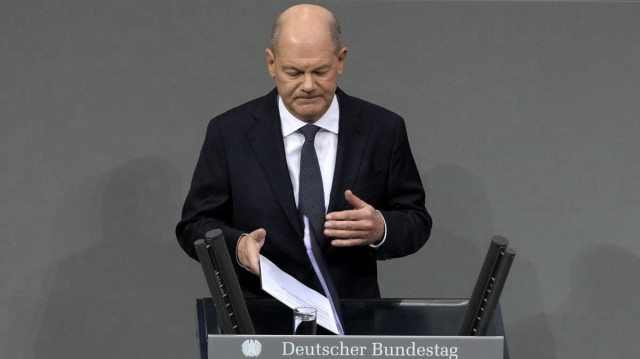Tensions Rise Over US Involvement in European Politics
Discover how US Vice President Vance's comments on European politics spark controversy ahead of German elections. Key insights on political dynamics and transatlantic relations.
Published February 16, 2025 - 00:02am

Image recovered from yenisafak.com
The recent statements made by US Vice President JD Vance at the Munich Security Conference have sparked significant controversy, particularly in Germany, just days before their parliamentary elections. Vance's speech, criticizing European governments and the European Union Commission, has drawn sharp rebukes from European political figures, highlighting the complex and often contentious nature of transatlantic relations.
German Chancellor Olaf Scholz publicly condemned Vance's comments, characterizing them as an unacceptable interference in Germany's electoral process. Scholz emphasized that Germany would not permit any external influence over its democratic procedures or election outcomes, particularly from allies. His remarks point to a broader tension between the European Union and the current US administration, illustrating the challenges in maintaining cohesive international relationships amidst differing political ideologies.
Vance's speech was notably supportive of the far-right Alternative for Germany (AfD) party, which has historically been marginalized by mainstream German politics due to its extremist positions. The US Vice President's endorsement has been deemed as a breach of diplomatic norms, further exacerbating the friction between the US and Germany. This endorsement was underscored by Vance's meeting with AfD Co-Chair Alice Weidel, suggesting a realignment in some aspects of US-German political engagements.
Adding another layer of complexity, President Donald Trump expressed agreement with Vance's assertions regarding the challenges facing freedom of speech in Europe. Trump's comments from the Oval Office supported Vance's viewpoint, indicating concerns over what they perceive as a retreat from democratic values within the EU. This discourse, linking freedom of speech and electoral integrity, complicates the transatlantic dialogue in a landscape already fraught with trade and security concerns.
Meanwhile, French President Emmanuel Macron's recent interview with the Financial Times echoed the need for European strategic autonomy. He highlighted the importance of reducing dependence on the US for defense and emphasized strengthening Europe's internal economic and defense capabilities. Macron's comments reflect a broader European sentiment that advocates for a more independent regional policy, which might reduce transatlantic friction by diminishing reliance on US support.
Beyond the immediate political discourse, Vance's emphasis on Europe's internal threats, rather than external forces like Russia or China, has stirred debate. He indicated that Europe's current challenge is its deviation from shared democratic values, a perspective that challenges the narrative of external threats being the primary security concerns. This framing positions internal European politics as a pivotal factor in international security discussions, reshaping how security and democracy are perceived in global contexts.
The implications of these dynamic political interactions are significant, not just for upcoming elections in Germany but for the future of EU-US relations. The emerging discussions over defense spending, electoral transparency, and political alignments are indicative of broader shifts in traditional alliances and geopolitical strategies. As Europe grapples with these internal and external pressures, the dialogue between these regions will be crucial in shaping the political landscape in both immediate and long-term scenarios.







